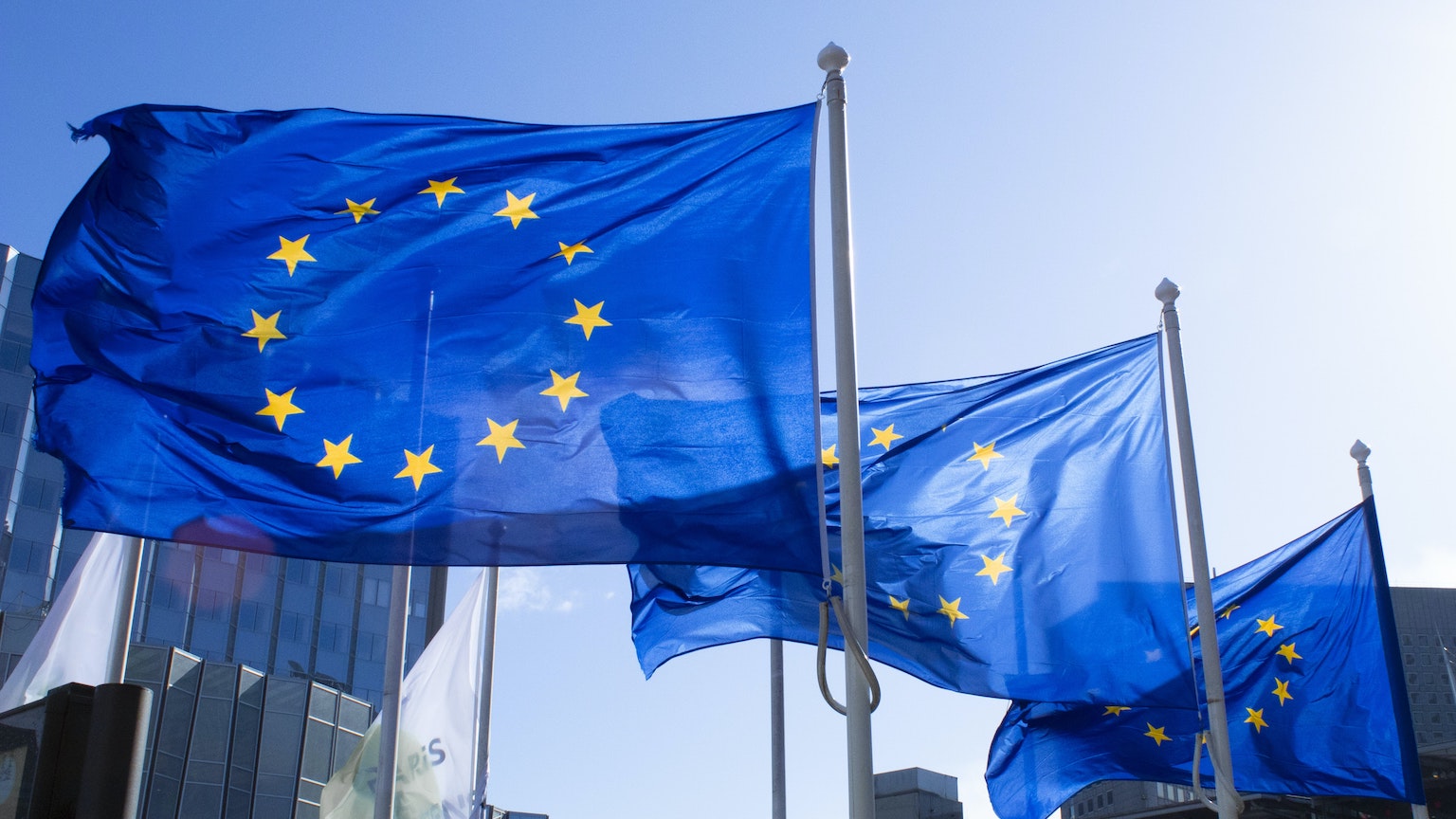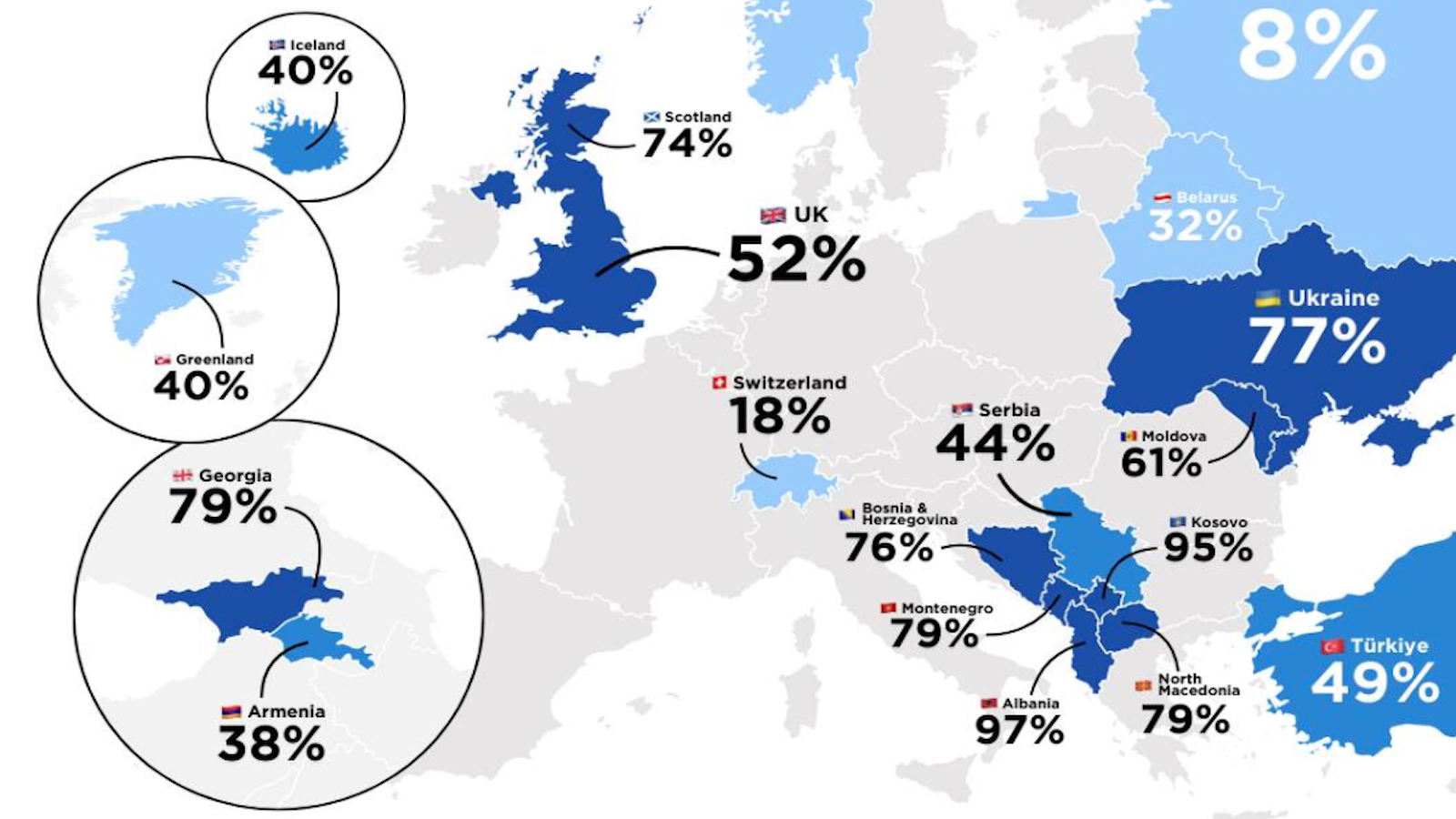European military: will the EU ever learn to defend itself?

- History showed the French, on more than one occasion, that they needed to better provide for their own security.
- Geopolitical crises tend to come on gradually — until they come on suddenly.
- The EU drags its feet on military defense because European citizens are complacent and have not awakened fully to their new geopolitical reality: They cannot rely on American military largesse.
It was white bread, greasy soup, and the Franco-Prussian War of 1870 that finally won France over to the value of military conscription, which had been instituted for the first time by Napoleon Bonaparte in 1798. Napoleon had seen a set of needs: not only a need to modernize the nation’s armed forces but also to turn the peasants of France’s far-flung regions into Frenchmen. This just happens to be the title of Eugen Weber’s thoroughgoing book, Peasants into Frenchmen, which describes the tortuous journey from stationed military conscripts being perceived as a quasi-foreign imposition to being celebrated as defenders of the nation.
Weber describes the travails met along the way. Farmers whose sons were called up to the armed forces lost so much economic value that an entire cottage industry of hiring substitute recruits sprang up. Napoleon hoped that conscripts would learn some French and perhaps pick up some cosmopolitan attitudes, but they promptly forgot them if they returned home. Superstitious rituals were still the norm. And wealthier French citizens recoiled at the idea of their sons mingling with the lower classes in the barracks.
But there were upsides: life in the army was also softer and easier than life on the farm, the food was better, and a series of reforms across the years gradually raised the appeal of conscription. What started off as an elite project finally gained full acceptance when the French were decisively defeated in war by the Germans, whose military organization was more modern, its staff more professional, and its infrastructure more rationalized. The need for a competent and modern security apparatus, including a better system of universal conscription, was clear — and the French adopted it, but with a shorter period of service.
The moral is that geopolitics had done its work: The generations-long effort to build an institution and shape a society had met the sudden impetus of regional events.
Europe’s lackluster military defense
Fast forward to the present day. We are living in another era when Europe needs a new security idea. It is a realization that has come on gradually, as consecutive U.S. administrations have consistently pressured their NATO allies to take up more responsibility for their own defense. And now it has come on suddenly, as the chaotic U.S. withdrawal of its remaining forces from Afghanistan exposed the relative helplessness of America’s allied forces to manage the situation and protect their own interests in that country. German Defense Minister Annegret Kramp-Karrenbauer described the problem in blunt terms in a short opinion piece for the Atlantic Council.
“We were unable to resist the U.S. decision to withdraw from the country because we did not have the military capabilities that would have enabled us to stay on there without the American military presence,” wrote Kramp-Karrenbauer, formerly and briefly the leader of Germany’s Christian Democratic Union. She later put the onus squarely on EU member states to rectify the situation.
“Real strength in EU security and defense can only come from the member states and their capitals. That’s where the resources are, and that’s where decisions about the use of force can be made. The institutions in Brussels can certainly help, but it is the member states’ responsibility to come together and end Europe’s lackluster performance on defense.”
The minister’s framing has a reason: Upgrading the continent’s defenses has been a slow-burning topic over the last decade, especially since NATO members agreed in a 2014 summit to boost military spending in their countries to a threshold of at least two percent of GDP. (By comparison, U.S. military spending amounts to between three and four percent of GDP.) Plans by EU institutions, like PESCO, aim to upgrade and integrate EU militaries.
But, as we learned from French history, this cannot remain simply an elite project. Ultimately, it must come from the voting public because nothing sits closer to the core of what it means to be a nation than military capabilities. To be French means to have a French military; to be European means to have a European military. Yet, few parties across Western Europe’s political landscape make it their top priority to press the case for better defense capabilities. Europe’s politicians need to craft and share with their voters a clear vision for what it means to act seriously about defense once more.
Like turning a battleship
It is not easy to steer a course change at the popular level. The generation that is in its middle adulthood in core EU countries like France, Germany, and Italy is the same generation that saw conscription end in their countries. The youngest generations have no experience of it at all. Meanwhile, Germany’s military spending dropped from 2.6 percent of GDP in 1988 (in West Germany) to as low as 1.1 percent in 2015, according to SIPRI. (It sat at 1.4 percent in 2020.) France’s military spending is on an upward trend and did cross the 2 percent threshold in 2020 — but it was twice that in the late 1980s. Of course, rising budgets overall mean that real spending might have increased, but the rate of those increases falls well short when compared to potential adversaries such as Russia, China, and an increasingly raucous Turkey.
What these changes all add up to is a generation of Europeans that did not come of age having thought much about military defense, barring specific individual interests. Foreign policy analysts speak of an “end-of-history” delusion that led a generation of policymakers astray, and this fading of military thought is a popular version of that phenomenon. It seemed appropriate at the time: Conscription was indeed an expensive relic, the Soviets were gone, and Europe had staked its role in the world on its moral qualities, leaving the military spending to America.
That is why major parties do not stress military matters as a primary organizing principle for their platforms. On the other hand, there are plenty of platforms calling to leave NATO or for nuclear disarmament. Although they usually sit on the fringes, Jeremy Corbyn did stand for years at the head of the British opposition; Jean-Luc Mélenchon’s La France Insoumise made a stronger than expected run in the last major French election; and at the time of this writing, it is at least possible that Die Linke could be part of Germany’s next ruling coalition.
European military: a new hope?
Despite this, there are plenty of signs that Europeans are ready to respond to the new reality they live in, one where their continent wears a girdle of threats. This is especially true at the edges of the continent: Countries such as Sweden have reinstituted conscription. (Others never actually ended it.) Countries such as Poland are demonstrably eager to ward off the Russian menace at their borders. But it is the core of Western Europe, from the EU’s Franco-German engine to the original members of the EU and NATO, that determine the movement of the greater whole. In that EU core, one of the main hang-ups in prescribing a coherent vision for defense is the question of whether to emphasize NATO or EU mechanisms as the framework within which to move forward. A strictly national emphasis has generally been the province of far-right parties, which generates caution among the wider electorate.
Western Europe’s politicians have an important job to take up, one that has hit with the shock of Afghanistan and should be especially clear given the political destabilization of their military patron saint across the pond. As Kramp-Karrenbauer points out, change rests in the realm of national politics, so it is up to national political leaders to take their discussions outside the forums of EU institutions and present them to their own voters in a way that stirs some motivation.
It should not take generations to get Europeans focused, as in the case of the beginning of conscription — the world simply moves too fast for that in the 21st century. But hopefully the needed changes will occur before events compel them.





